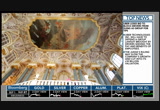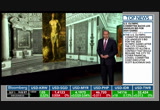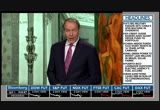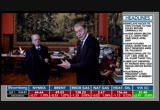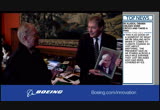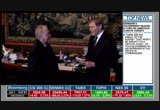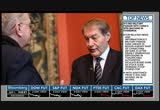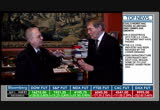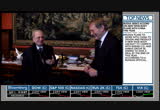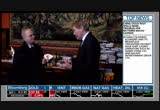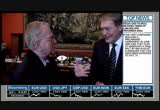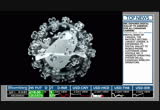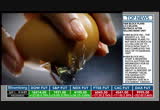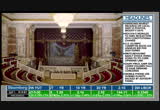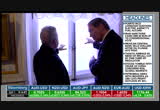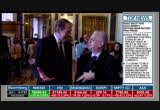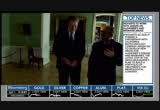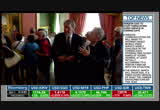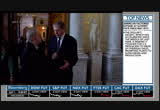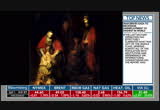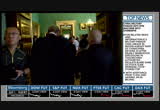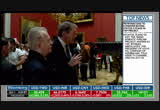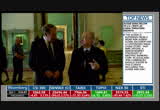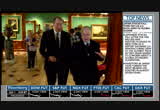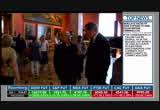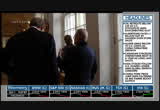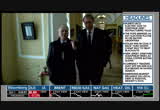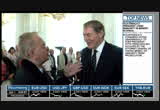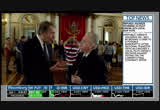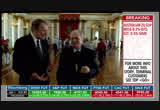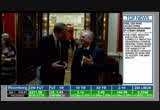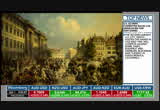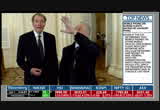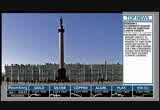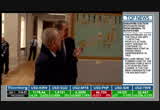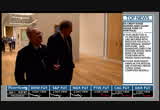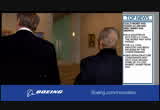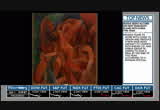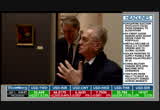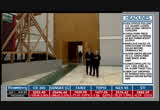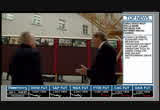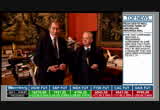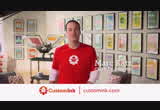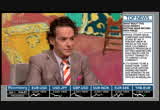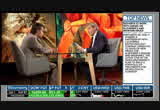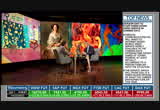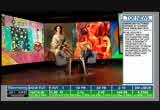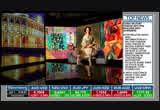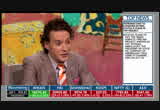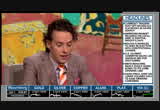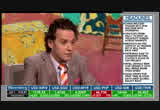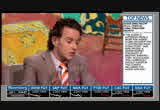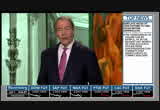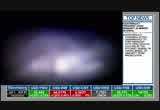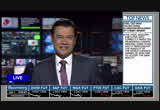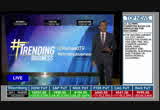tv Charlie Rose Bloomberg September 1, 2015 9:00pm-10:01pm EDT
9:00 pm
♪ >> from our studios in new york city, this is "charlie rose." >> i've grown up in this museum, my father was director of this museum for 26 years. ♪ >> not modern, but this museum is a family. when we live in difficult situations, the culture is the bridge that keeps us altogether. all russians want to recreate the great russia. we told the story of imperial russia, which everybody wants to recreate somehow.
9:01 pm
we told the true story. it is a kind of frame which helps you understand what really is needed to create something that will look good as the good sides of imperial russia. we have a project called great hermitage.- we have central buildings and we have built big buildings for open storage to show everything we have, to be successful for the public. all the carriages, all the furniture. our goal is to bring to hermitage collections of american heart. to be a great state means a great army, good economy and great collections in museums. we live for the future and we live because of the past. charlie: tonight we tour inside
9:02 pm
one of the largest and oldest repositories of art and culture in the world. all of my life i have wanted to visit the hermitage museum in st. petersburg, russia. it's where catherine the great began assembling her personal art collection in 1764. today it houses items from the , antiquities to the largest painting collection in the world. on a recent trip to st. petersburg, i was finally able to visit this historic palace of art. my guide, mikhail piotrovsky, the director of the museum he inherited the post from his father and has guided it in russia's transition from the soviet union to the presidency of vladimir putin. with very little notice, he made time for me, invited me to visit on a saturday afternoon. the museum was full of people. this is not movie making perfection but it is what it
9:03 pm
, would be like if you were there yourself. so join us as we examine the history of its vast interiors and look at some of the most famous works of titian, rembrant, picasso and matisse. this was done on a busy weekend with no lights, one camera, and very little preparation. we simply took advantage of an extraordinary opportunity and wanted to take you with us on the journey. we are in the office at the hermitage of mikhail piotrovsky. we have known each other for a long time and he's been on my program a number of times, including most recently when he came to new york to talk about the 250th anniversary of this museum. this is his office. it looks like the office of anybody who loves books, loves art, loves culture. but it is from this office that he directs this is magnificent museum and its extensions, the
9:04 pm
art they bring in, the art he allows to be seen around the world. this great museum put together by catherine first as a palace, then as a museum, recently celebrating its 250th anniversary. he has assumed the directorship of this museum following his father. there's a photograph of his father here. but he's been to america a number of times. this is the first time i have been in st. petersburg and in hermitage. of all the things i wanted to do, certainly high on the list was to interview the president, but secondly was to come here in this place and see this man. mikhail: thank you. and welcome to hermitage. this is my office now, it was my father's office for many years but historically it was the , office of the cabinet of ministers of the russian empire.
9:05 pm
the of ministers were here? mikhail: now it's a working office, and it is historical. the desk belonged to alexander iii. the belonged to tchaikovsky. this portrait is of catherine the great, our founder. this is the way of diplomatic gifts. this is how they are giving their portraits as diplomatic gifts. charlie: the queen and king. prince phillip. mikhail: the queen of the netherlands. these are old friends of hermitage. charlie: and there's the clock that tells us it's noon in moscow. mikhail: and there's a cannon. charlie: a cannon goes off at noon. and here -- may i take this? mikhail: sure.
9:06 pm
charlie: this is your father. yes, my father worked all his life in hermitage, 26 years as director but all his life, 70 , years, from young student to director. he was an archaeologist. great archaeologist. charlie: but your expertise is arab and islamic art. mikhail: it is. arab and islamic art and ancient history. charlie: and you took over from him at his death. mikhail: at his death, yes. it was in 1991, he died. in 1992, i became director. i was appointed director of hermitage. charlie: there's a remarkable similarity between the two of you. mikhail: he was very tall a bit taller than you. well, my mother wasn't. charlie: what was the legacy that he left you? mikhail: the legacy was the
9:07 pm
the scholarship is the main first one, thing for the museum. he was a scholar and traditionally of the museums are scholars, must publish book, my last book just came out two days ago. scholarship should be the base of everything. that is one thing scholarship , and culture. this is the legacy which you need a lot of time and effort to protect because this problem of what is a museum, a temple or disneyland. it is an important one to show. charlie: repeat the question that you have to ask. mikhail: the museum is more a temple and a university than a disneyland. charlie: the museum is more of a temple. and a university. it is not a disneyland. it is the home of the best a civilization can produce. mikhail: yes, and it needs some explanation.
9:08 pm
you have to explain to the people. it's not just something you drink a glass of wine and you are happy. you have to study, you have to think, you have to look, you have to listen to some explanations then you understand , how beautiful it is. charlie: also, you know this well, as countries go from one administration, one rule to another, it has to be always protected as the center of learning and the best of the civilization. it has a unique place, you hope. mikhail: we help. hope.e mikhail charlie: above politics. mikhail: we think it is above politics. always we have to use it as a connection between the nations where the politics is. it's exactly how it is now. but you have to protect it also when the political situations change, we have to protect it, also the national treasure from all different kinds of intervention, ideological or
9:09 pm
monetary or whatever. charlie: we'll talk more about that later. you want to show me today what? mikhail: i want to show you one important thing. two important things. the first one, tradition. this museum and the palace, it was always palace and museum because catherine the great established hermitage as part of her palace and then built build -- buildings for her collection. it was part of the life and important decisions with pictures and sculptures around . so this combination of museum , and palace is unique. that's why it is a great collection of world art and also a great monument of russian political history, imperial political history. the russian empire began here with peter great, and ended here with nikolai ii. charlie: she was a remarkable woman. mikhail: catherine was fantastic. she has done so many things
9:10 pm
which we can learn now, you know. beginning from, presenting history, collecting, behaving, when a woman behaved like a man. it was a kind of feminism. we study and study, every year we make an exhibition about her. and it's always very interesting and important. charlie: what we'll do this afternoon is not only see some of the best art, but also the fact that the hermitage has expanded beyond its original. you've got new buildings. mikhail: yes, new buildings. we have a system or conception called the great hermitage, which means expansion but not exactly just new buildings. it's sometimes new buildings, then new buildings for storage , where we show everything that we have in storage, then hermitage outside of st.
9:11 pm
petersburg in europe, so it's dynamic two sides, internet, a dynamic system of a global hermitage. it is more than just extension in st. petersburg. we are very ambitious. charlie: ambition to be global as an expression. mikhail: as an expression of world culture. this great museum was collected by russia first. it doesn't belong just to russia. it belongs to the world. that's why we must be present all over the world. that's why we have connection and friends and organization of friends all over the world. that's why when we have problems we have friends all over the world that we ask for help this kind of help or another kind of help. because we belong to the world and the world belongs to us. i think it's very important, today. it's not just to this point, we think it's very important, it's a world museum which belongs to the world. charlie: not everybody in russia
9:12 pm
likes that? or not everybody where? mikhail: not everybody in russia, i suppose. charlie: i could not be more exite about coming here with you and to see. i am almost happy that i haven't seen it before. mikhail: i'm always saying to people who come for the first time to the hermitage, you're lucky. you can see something new that definitely is interesting. charlie: you lead the way. mikhail: i'll lead the way. ♪
9:15 pm
mikhail: this is one of the itage.parts of the herm it's a theater, built specially for catherine great. very exclusive, 150 person. charlie: for her friends. mikhail: she loved theater. she was writing a historical opera. charlie: this is the museum. mikhail: this is the museum. charlie: with a saturday afternoon crowd. how many people on average -- mikhail: on average we have 3.5 million every year. the problem is that most of them come in the summer. that's why -- charlie: as we do this in june, we have all the people who are away from school. mikhail: exactly.
9:16 pm
white nights and so on. this is the room of the italian, and here we have beautiful views. peter and paul fortress. we have the celebration of the end of the school year. charlie: this is the neva. mikhail: and one of the special features of the hermitage, it's not just the best collection but the best views from the windows in the world you don't see that, no other museum in the world has that. charlie: you say that as a proud director of the hermitage. mikhail: right. well, this is the italian room. it is one of the most famous artists. leonardo da vinci. charlie: what are we seeing here? mikhail: this is the room of leonardo da vinci.
9:17 pm
we have two pictures by davinci. two of our main masterpieces. these rooms have been used as guest rooms for the guests of the czar. guest rooms for the guests of the tsar. this is the room of titian. all pictures by titian. this is maybe the most important painting in our collection. charlie: has any other leader ever done as much for art as catherine? mikhail: well, it is difficult to compare. she was certainly in competition with realy the great but she has done more. definitely. she managed her money better than him. also she has another trick, she knew she was buying the best collection. she once bought a collection
9:18 pm
from paris. the bought the collection of the first prime minister of britain. .is collection she knew that to get the best. in a way her style, it's -- it is very interesting. charlie: she had a group of people that informed her. mikhail: she had some friends, intellectuals, who advised her. she had one in paris. she had russian diplomats who knew what she likes. and she also had dealers come friends who were telling her. , so she was very good about asking advice. charlie: about quality and price. mikhail: about quality and price. this?lcharlie:
9:19 pm
mikhail: this is one of the first paintings done by titian. it was done in venice. it's one of the first landscapes in italian art. it was recently restored, took 10 years to clean it properly. charlie: you took it out of circulation and cleaned it. over 10 years. mikhail: over 10 years. it was a scientific cleaning which took 10 years, with x-rays, just to clean the painting. charlie: wow. it's one treasure after another, isn't it? mikhail: this is the problem. this is wonderful, but it's also a problem. that's why you have to have satellites all over the world, to show all these things, to show them a little bit apart. because when you have 10 titians in one room it's difficult to appreciate one of them. charlie: one would be -- museums would like to borrow one. mikhail: exactly. that's what we try to do here. we bring in from time to time one masterpiece from one museum.
9:20 pm
now we're crossing the room of the early italian paintings. charlie: with changes in politics, is it difficult to get museums in other parts of the world to loan to you? or have you -- mikhail: sometimes it is difficult. now it is difficult. because it also depends on politics and economics. now, for instance, it's a tragedy. for two years, we don't have exchange with american museums because there is problem with the russian state about the hasidic library, and because of this the russian state is afraid somebody could be arrested. we demand a proper guarantee of the state, not just legislation. guarantee that it comes, it comes back. so we are now in the middle of negotiations. charlie: so this is -- mikhail: this is one of the most important, the best pictures in the world.
9:21 pm
's return of the prodigal son. this is rembrandt's room. the return of the prodigal son. you can see how, you get a sense of the theological sense of the painting. charlie: rembrandt's return of the prodigal son. you are in the room where it is. so this is another rembrandt room. approximatelyve 21 rembrandts. charlie: 21? mikhail: let's look at this one, one of the most beautiful one. this is the holy family. charlie: this is the holy family? mikhail: one of the most human pictures. by rembrandt. charlie: rembrandt, holy family, dated 1645.
9:22 pm
rembrandt lived from 1606 to 1669. acquired by the the hermitage in 1772. mikhail: during the first world war, they want to evacuate the hermitage. they prepared three trains. two trains left, one stayed because the october revolution happened. during the second world war, they prepared also three trains. two left and the one stayed. charlie: where did they take the art? mikhail: to the ural mountains. charlie: what is this room? mikhail: this is -- these are italian and spanish rooms. this is the room of spanish collection. this building was built for nikolai i.
9:23 pm
he said he had seen something in munich and wanted the same. he brought the designer from munich. this is still considered a masterpiece of museum architecture. the lighting and everything. it is decorated by the objects from stone. russian-made, it was nicholas i's idea to put russian stone in the rooms which is beautiful. so here we have these big paintings of italian and spanish. charlie: that great room. mikhail: it is. two or three big rooms with a lot of wonderful, we get a lot of light. charlie: where do we go from here? mikhail: the dutch paintings. charlie: peter the great. mikhail: peter the great log the netherlands, holland.
9:24 pm
it was the most developed countries europe. he loved holland and he loved dutch art. after he was buying dutch art. we have the largest collection of dutch art outside of holland. certainly rembrandt and many, many other rooms. charlie: catherine, did she buy a lot of flemish art as well? mikhail: yes, and we'll see the flemish art. the dutch is small paintings with -- charlie: look at this room. mikhail: this is one of the rooms. these rooms are so beautiful. when you do the lighting, you don't know how to show, how to concentrate the light on the pictures definitely, but the ceiling, the walls. charlie: everything is beautiful. everything has been so thoughtfully considered. how many employees at hermitage? mikhail: we have 2500.
9:25 pm
charlie: curators, security and every -- in every room. it's terrible. charlie: because of cyber terrorism or terrorism period. mikhail: we have increasing security. but in general we have something like 3000 curators -- 300 curators, 300 restorers. engineers and guards. charlie: you are constantly restoring? mikhail: yes. every picture which goes to exhibition must be restored. also we have the scientific restoration like titian when you clean the picture and study it, study the history of it. charlie: it may give you new insights once you clean it. mikhail: absolutely. now we're here, flemish paintings. rubens. these two paintings are from the first paintings bought for hermitage.
9:26 pm
this one and this one. adam and eve. charlie: the first paintings bought -- mikhail: -- for it was 1764. charlie: 1764. where did she buy it from? mikhail: there's a political story. there was a war between russia and prussia. it was ended. it ended. but during the war, german dealer, very famous one, collected a good collection of paintings. but the war ended, frederick the great had no money to buy this collection. he spent all his money on the war was russia. russia have the money, so catherine bought the collection. it was the beginning of the -- and it was also very important political gesture. we can do it.
9:27 pm
charlie: this is crossing from -- mikhail: from the hermitage building, building which is called hermitage, into smaller buildings. this is the courtyard. then one building. the building was small hermitage. the first floor. charlie: we're now -- mikhail: we are going along the garden. we are in the rooms for netherlands. early netherlands paintings. and with the galleries, these galleries have been the first which catherine built for her collection. and we are crossing and entering the winter palace, the main residence of russia's tsar. charlie: describe the winter palace. in the beginning it was palace and museum. mikhail: yes from the beginning , it was palace and museum.
9:28 pm
the museum was put in the palace and then from the beginning it was a building built for the museum near the palace system of -- so they had receptions here and there. so it was a combination of museum and palace. to the left, now we turn into the winter palace. official residence of russian tsars. charlie: nice residence. mikhail: not a bad one. we enter not from the main entrance to the st. george hall. this is the st. george halls, the throne room of the russian empire. , andil: the throne is here the room, st. george, st. george was considered the saint of the romanovs.
9:29 pm
that's why the main room also in moscow is called st. george is called st. george hall. the kremlin. maybe we stay here to look at the throne. it has its history. after the revolution it was , demolished and the big map of soviet union was put here. a beautiful map from precious stone. then soviet union finished, that was taken out in another museum and we begin to restore the throne. we found details of the throne hidden in different places in the museum. unnoticed. unnoticed unregistered. we found everything to restore it. charlie: what happened in the throne room? mikhail: the throne room, it was part of the museum. they put a big map of soviet union from precious stones and here there have been different things displayed. here we usually display, use it for different big ceremonies. and here we display some gifts which we are getting.
9:30 pm
putin gave us faberge for our anniversary. they have been displayed here. charlie: vladimir putin gave the museum -- faberge. charlie: he acquired it or it was -- mikhail: he acquired. it was bought by some russian businessman. and presented to the president to give it to the museum. charlie: that's how it happened. mikhail: that's how it works. that's how we got these things which have been brought by russian businessmen who have been abroad. it was a way to return back things. charlie: these russian businessmen, very wealthy. as they travel around the world and see art for sale.
9:31 pm
mikhail: they buy a lot. and most of their collections are abroad. it's not easy to persuade them to bring them back to russia. until vladimir putin says your president would like for his hermitage. mikhail: this is a good thing. usually they were receiving ambassadors. they're standing in the throne. he was never sitting. charlie: the tsar was always standing. mikhail: standing. the ambassadors, before coming into the throne room, would have through this room military corridor. , which has portraits of all the generals of russian army who fought napoleon. charlie: who fought napoleon?
9:32 pm
mikhail: who fought napoleon. so it's a special room commemorating the russian victory over napoleon, the most important thing we had in the 19th century. charlie: the victory over napoleon. first the russians showed napoleon no, then they said to hitler, no. nyet. mikhail: exactly. the 19th century war is much cleaner than 20th century. charlie: these are the generals who fought napoleon. mikhail: and over here, the duke of ellington because he fought as well. charlie: wow. unbelievable. it just goes on and on and on. we're still at the palace. mikhail: still at the palace, the main rooms of the winter palace. this is called the room of the crest of arms. we have crests or coats of arms of all governors of russia on the chandeliers.
9:33 pm
so when the governors have been coming to be presented to the tsar, they would be standing under the symbol of his crest. a wonderful picture of russian army entering berlin for the first time in 1760. this is the time of elizabeth ii. charlie: this is here now because of the commemoration. mikhail: we put it as a commemoration. charlie: 70 years since the end of world war ii. mikhail: yes. 70 years. third time. second time it was napoleon's time. the first time was the prussians. charlie: i love the size of it too. mikhail: a lot of wonderful kind of military paintings. still some of them need space to be shown. charlie: and this room.
9:34 pm
mikhail: this room is called hall.dra ski once again it's about napoleon and victory over napoleon this portrait of alexander, there are some things which belong to him. now we have here the big exhibition of european silver. but the room by itself, pictures, symbols of different battles between russians and french. charlie: in a way, napoleon gave a lot to russian art, didn't he? mikhail: absolutely. charlie: his defeat commissioned so much. mikhail: and not only to art. it's -- this war was such a fairy clean war for russia. war is always dirty, terrible, nobody is right. this is a war that was very clean. we were right, defended our country, and something to be proud of. that's why all this is commemorating the, these two
9:35 pm
napoleon. we are leaving the winter palace. we haven't seen everything, still a lot of things to see. charlie: we'll see some of the new. mikhail: we'll cross the square, cross the square and we'll see the eastern wing of the buildings which is called the general staff building. charlie: beautiful day. nothing like a st. petersburg day in the summer. mikhail: this is one of the most important halls. it's full of matisse, one of the best collections of matisse in the world. charlie: look at this. mikhail: experiment with the new lighting. not every picture likes big hall or too much light. it is always a kind of experiment. i think it is quite good. this is the famous madam matisse. it's a family portrait.
9:36 pm
charlie: how many matisse? charlie: around 40. mikhail: around 40. this is music. there's also the dance. the dance is now in paris in a museum of louis vuitton. this is fantastic matisse. for me it's the best one. the best? but you have something on loan to the new museum in paris. mikhail: yes, the dance of matisse. we have music and dance, this is very fragile. we have agleements with the them for certain exchanges and cooperation. charlie: i love the color. mikhail: the color is fantastic.
9:37 pm
this is one of the -- charlie: you must be very proud of this? mikhail: yes. charlie: a significant addition to the hermitage. mikhail: now they have proper space and we can experiment with it. this is a fantastic portrait, now it looks very well. also, there's some discussions now and i decided to make a kind of, because it's so new, a kind of referendum of the visitors how do you like the new display? , because there is a fight inside the museum, this is right, this is wrong. so i decided to ask the people. charlie: people who come to see the museum. mikhail: what do you think about having matisse on white walls or red walls. this and that. charlie: what's the response, do you know? mikhail: i don't know. i just decided to do it.
9:38 pm
this is fantastic red room. i think they look very well. charlie: how do you feel about it yourself, from your own point of view? mikhail: it's good. it works for me. the a week ago it was very different. it was bad. i said no. absolutely wrong. don't open it. change it. i think now it looks great. well this is picasso. , charlie: here we are. how good is your picasso collection? mikhail: also, very good. some fantastic things. matisse is the best. matisses don't exist in moscow. charlie: and this is picasso. mikhail: this is the best picasso we have. it's like on the level of -- charlie: yes. yes. you can see the connection.
9:39 pm
1908. mikhail: 1908. charlie: but you can still see, can't you, some of the sense of the painting at the museum of modern art. mikhail: yes, it's the same period. the same way of showing the forms and so. charlie: every one of these rooms has natural light. mikhail: yes. every one of these rooms. there are other rooms. most of them have the natural life. and this play between the modern forms and classical. charlie: and light floors. mikhail: you see it is a historical building, we can do only some things here. we have a lot of places where we show how historic it was. this is the famous sisters. charlie: tell me about the paintings. mikhail: this is one of the great picasso paintings, the sisters. it's a lot of stories, two
9:40 pm
sisters meeting in a prison, two sisters meeting in hospital, two mary and elizabeth. ,always you can have many explanations. charlie: how long has this been in the russian collection? mikhail: it is from the beginning of the century. it was in moscow in a private collection and then came to hermitage. charlie: so this is the gift of the -- mikhail: a gift from the united states of america for a big anniversary. a big collection of american art, collected by helen english, an american historian. given to us from the american foundation of hermitage. it's a whole room of masterpieces of american decorative art to add to our collection. it is a big gesture of trust. charlie: the hermitage is not only building, it's acquiring. mikhail: yes, we're acquiring. we have a lot of friends.
9:41 pm
well, this is another gift given by the artist. it is considered to be one of the masterpieces of art of the 20th century. it's -- we just built a hall suitable for this. it's a wonderful thing, it's a history of russia. first it is utopia going to the skies, then inside you have a shelf, soviet russia with some old soviet songs and it's very nostalgic. then all this, it's not rubbish . it's an installation. and we added another thing to this. perestroika is rubbish and this is the next stage.
9:42 pm
charlie: so you've got perestroika, are you saying perestroika is in the dust bin of history? mikhail: it is. it destroyed everything to build something. everything was destroyed. now i think that what we have built shows we can build something. charlie: yes. mikhail: it's a very important gift. artists are more generous than billionaires. this costs at least $5 million or $6 million. charlie: it was given to you by -- mikhail: by the artist himself. charlie: thank you for being our guide. thank you for being our friend. thank you for keeping this place in such a remarkable way. so that it continues, we saw new exhibitions with new space. yet at the same time acquiring art across the spectrum. thank you, my friend. mikhail: thank you very much. sorry for taking so much of your time. charlie: no, no. mikhail: it's my fault, you know. there's so much i want to show
9:43 pm
you. charlie: i have friends around the world. this is a remarkable place. this is beyond political conflict beyond politics. , this is a place that harbors some of the great, great treasures of the world. and for me to come and be here and to see it with my own eyes and to have such an articulate and brilliant and honored guide has been one of the great pleasures of my life. you should all come to russia and you should all come see the hermitage as a reflection of a great country. ♪
9:46 pm
charlie: continuing our ermitage we of the h , talked to mark kelner, vice president of the hermitage foundation. we begin with that question, what is the hermitage fundation? mark: hermitage foundation is a group of american friends interested in supporting the hermitage and its director in whatever they might need, logistically, creatively, financially in exhibiting western and american art or restoring work that needs help in the hermitage. we have a very interesting situation because in the post-soviet period, there's a period that involves cultural diplomacy that they can call on us, saying we're interested in learning about american art and what access can you offer in new york, you know, in ohio. charlie: we are in a post-soviet
9:47 pm
period. mark: post soviet and sometimes it's difficult in terms of what's going on politically. but truthfully these are people , who are servants of the culture that aren't paying attention to what's happening politically because one doesn't affect the other. charlie: but your central function is to serve the hermitage. mark: yes, and specifically whatever requests they might have. logistically, we are there. charlie: a bit about you. russian parents. mark: yeah. charlie: you were conceived in russia. you were born in america. mark: in cleveland, very proudly. charlie: and you want to be or are an artist. mark: i'm an artist, a lot of my art is rooted in the russian-american duality. i think that is what led me to work with russian collectors of art. anything having to do with art coming from a russian place i was involved in. there are russian emigre artists in new york, now considered staples of international contemporary work. i was around them and because of that the hermitage foundation
9:48 pm
found me and we got to work together on a couple of international contemporary projects. it was really, really kind of cool. hard to say no to. charlie: considering your background, characterize this museum for me. mark: it's not an art museum. it's a museum of civilization. it's a museum, when catherine the great founded it -- we are having our 250 of its centennial 250th centennial -- she's like, look, russia demands a museum, deserves a museum, much like nothing the world has ever seen. and that was very much her personality. she started collecting and what's really interesting, everyone is thinking she's collecting work that's ancient but the joke is that she's collecting work that's contemporary to her. i like to think that the work we're doing at the foundation is work that's contemporary to us. 20th century, 21st century, when dr. pietrovsky comes to america,
9:49 pm
i introduce him to some of the great photographers of our day, some great curators, some great galerists interested in using the hermitage is a means of promoting culture they've never seen before. charlie: who is this man that my audience just had a chance to walk through the museum he's been the director of for a number of years and before that his father was director, who is he? mark: he's an interesting guy, unlike anyone i've met before. he is the decider. the hermitage is a very totalitarian environment. one man makes all the decisions. in addition to what art goes on the wall where they put it. , mark: or when charlie rose shows up unannounced, yes, i'll lead him on a tour right now. it's very much his schedule and it's his home. that's it. there's no separating someone from his station, from that, you know, that's his life.
9:50 pm
he very much curates every part of that museum into his life, into, you know, when he comes here. he's not just representing the hermitage museum. he's representing russian culture and culture that is essentially world culture that needs to be exported. charlie: how does the museum and how does the director handle those times in which the politics are strained between russia and the united states, or russia and much of the western world? mark: i think right now there's, it makes for a sad state of affairs that we always have to, that russian art has always been politicized, that no matter what, if it's avant-garde, that russian art has been censored. you look at what's happening right now. artists are being censored. there's a self-censorship happening among contemporary artists in russia. charlie: self-censorship. mark: for fear of prosecution. if my voice speaks up, am i going to jail for it?
9:51 pm
a lot of actions we see are artistic in their root and a lot of people are scared. we don't know what direction things are going to go. on the other side of that coin, we have the hermitage museum that has been around for 250 years and government and regimes have come and gone, but the hermitage has stayed, historically. that's the world i like to occupy. when i go out with my tin cup and talk to people about, hey, let's start supporting the hermitage museum in terms of building their contemporary art collection for the first time, names like, let's get a warhol, let's try to find people that might be interested in putting on kuhn. if we're in the service of culture, politics shouldn't be something we should be concerned about. it's gotten more difficult to talk to people and be a cheerleader for the museum but among our crowd, i don't think many people care.
9:52 pm
charlie: there's a lot of rich people in russia. mark: there's a lot of rich people in russia and there's a misguided notion that, oh, we're a 501(c)(3). we have a situation where there's a lot of rich russians in new york why can't they help , their museum? in america we have a system where the wealthy have supported art and museums and museum culture. nothing like that exists in russia and never has. we're trying to show and i speak with russian-americans we're , trying to show that, look, it is your responsibility for where, you know, for -- you have a choice. you have an opportunity to promote culture in russia outside of russia, supporting the hermitage. and it's your responsibility. no one else is going to do it if , not you. i want the hermitage museum
9:53 pm
foundation to be a leader in holding that flag and saying we need help. look at our system. how can we -- how does that behoove the hermitage museum? the hermitage has a lot of friends. there are a lot of people who recognize the hermitage without having to recognize that we are living in vladimir putin's russia. charlie: the director of the -- another museum said he's sure that the friendship between the museum and the world has survived all the way through. none of us in any great museum has had to confront anything like the changes the hermitage has. it's stayed completely true to the traditions of being a repository of great things a full part of the international community. one can only guess thaw complicated that must be financially, culturally, and
9:54 pm
politically. that's from neil mcgregor. mark: three million objects are stored at the hermitage. there's no way anyone can see all of it in their lifetime. charlie: 10% of it is on display? mark: probably less. even though it's a huge museum, three million objects. it's also a museum that really is interested in establishing satellites, throughout russia. in moscow there's going to be a , satellite concerning contemporary art. that extends to europe. my goal would be, i'd love to see a hermitage museum in the united states. that would be a dream. and why not? and you know, despite whatever political manifestations of relations and, you know, it's tough. we're in a cold war 2.0 perhaps. but i hope not. but i don't see why that has to be -- why art has to be politicized in that way. it is the common core of what we have. charlie: culture and civilization.
9:55 pm
>> i think so. charlie: and it is a way to -- we live in a very, very difficult time in terms of culture. because we see people for a variety of reasons destroy culture as a political statement. mark: the people at the leadership of the hermitage museum foundation are -- our chairman of the board, an antiquarian who has been in 1970's. since the early i think 1972. i asked him about this he's turkish. i said look what's going on with isis. look at people destroying culture and kind of trying to make their own by destroying, you know, trying to make a legacy by destroying what's been before. he's like, mark, it's a terrible situation but we move forward. , we move forward.
9:56 pm
there's no choice but to. you know. there's wars going on. we're involved in preventing it by sharing what we have in common. charlie: thank you for coming. mark: thank you for having me. charlie: pleasure to meet you. this was an amazing experience for us and lots of people deserve credit. you will see a special credit list at the end. but i want to single out some people who, without them, it would not have been possible. mikhail piotrovsky, my executive producer, the cameraman who did a remarkable job under difficult circumstances. my colleagues at "60 minutes," jeff fager and craig crawford who came in and helped put together the package. on my own staff, christine edwards was wonderful in editing this thing and make it presentable to you. and corey englebrecht, who helped write and put this together. it's been, for all of us, an unbelievable experience. take a look at others who made it possible.
9:59 pm
10:00 pm
design to help users across the spectrum. in indonesia getting underway. -- half anhe session hour of the session so far. expect the people of the bank of china are not happy with what they are seeing. it is the last trading day of the week and we're seeing losses although they are not quite as bad as they were. down by 2.7% at the moment. we have seen china plus rate -- china's rate at a decline that happened last week.
51 Views
IN COLLECTIONS
Bloomberg TV Television Archive
Television Archive  Television Archive News Search Service
Television Archive News Search Service 
Uploaded by TV Archive on

 Live Music Archive
Live Music Archive Librivox Free Audio
Librivox Free Audio Metropolitan Museum
Metropolitan Museum Cleveland Museum of Art
Cleveland Museum of Art Internet Arcade
Internet Arcade Console Living Room
Console Living Room Books to Borrow
Books to Borrow Open Library
Open Library TV News
TV News Understanding 9/11
Understanding 9/11
